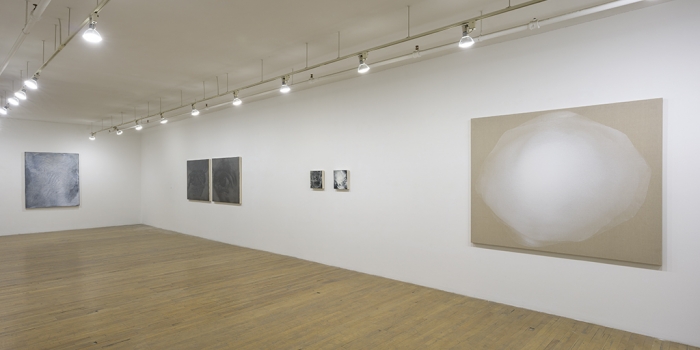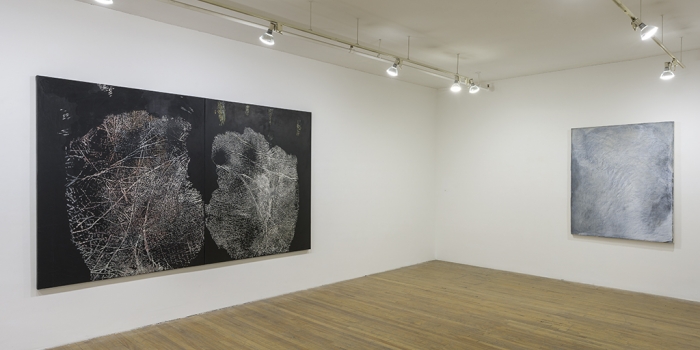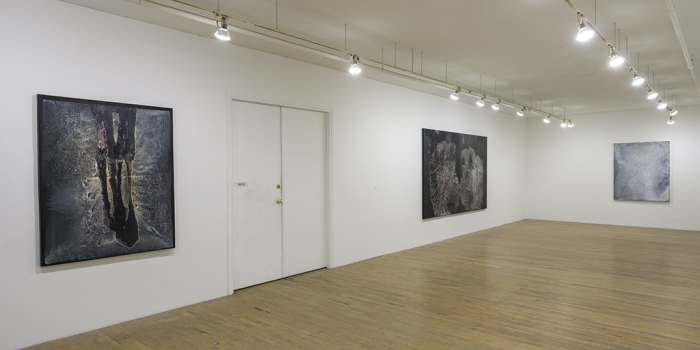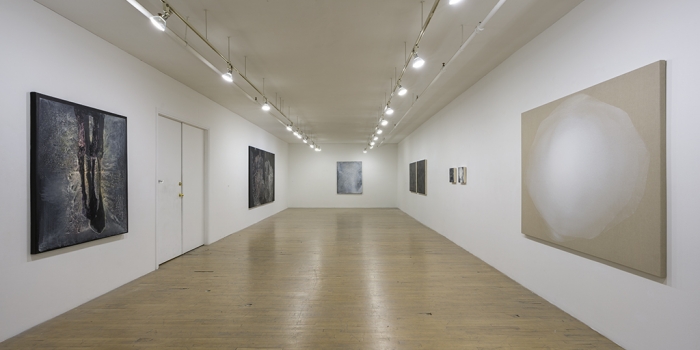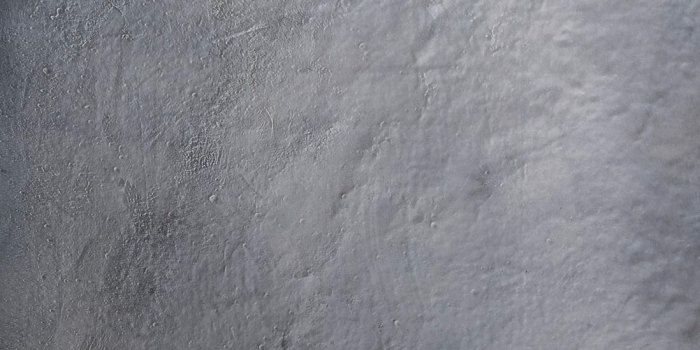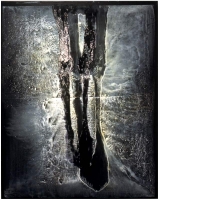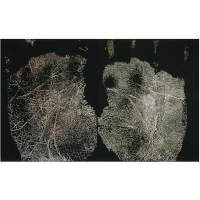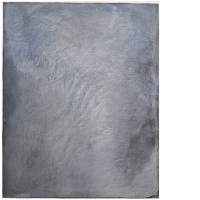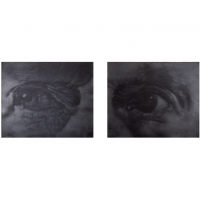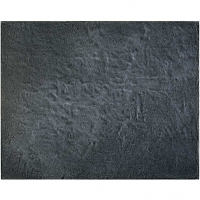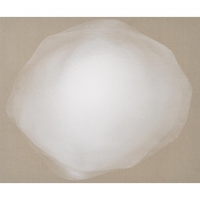The works of an artist are not all of equal importance, some are more critical. The so-called «First Work» being a good example of this. Rarely does «First» solely mark the start of a chronology. It is more likely the crystallisation of an affect; the moment of a toppling, where one passes, from a same, to something at once different and similar in it. We are peacefully in the middle of a line and a bolt of lightning cleaves us, and the line branches off and us with it.
On this line, the «First Work» is never alone, it comes with an entourage, its designation requires it. It is the presence of this entourage that makes the designation possible. Although these accompanying works are of before or after, the bolt of lightning has shattered their fixed positioning and given them the appearance and movements of electrons swirling around this core which is N/B.
What you see here is not a retrospective. It is the rebus of a passage. Notice the hanging of the works; two on your left, as many on your right, and whose whole revolves around this hinge which is N/B. Why so?
Because of this:
« As soon as completed, I was shocked. How to continue? How to paint from nothing? »
Nota Bene: before, one could continue. After, one must start from nothing.
With N/B, Verret is not faced with an impossibility, an aporia, she’s confronted to a question. What is the nature of her worriedness? Is it of not being able to continue to paint? Or could it rather be of simply being able to «just paint»? The so-called void of this nothingness therefore points to something of a remnant in surplus. Isn’t it paradoxical that this, possibly blinded, tenuous and meagre although thick of a delivering remnant remains in spite of everything? For, «just paint», leads one to think of an «only that». How could painting find comfort in this? And yet, from a «so little», or less than nothing, Verret saw that the shock that was staring at her held to the fact that she was at last home. How can one see this? Try imagine. Michel Bricault

